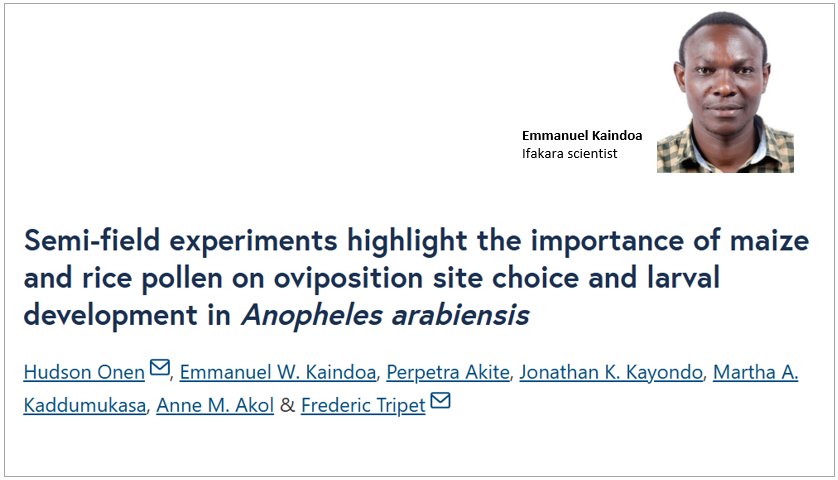
MALARIA CONTROL: Crop pollen linked to increased mosquito reproduction

Rice fields could be providing ideal breeding conditions for malaria-carrying mosquitoes due to pollen present in standing water, according to a recent study by researchers from Uganda, Switzerland, and Tanzania.
The research, conducted between March and October 2022 at the semi-field system of the Ifakara Health Institute in Kining’ina village, examined anopheles arabiensis, one of the major malaria vectors in sub-Saharan Africa. These mosquitoes typically lay eggs in temporary pools around farmlands, where pollen from crops such as rice and maize can serve as a food source for developing larvae.
Testing mosquito preferences
To understand how pollen influences egg-laying behavior, researchers set up artificial water habitats containing either rice pollen, maize pollen, or no pollen. Wild female Anopheles arabiensis mosquitoes that were ready to lay eggs (gravid) were released into a controlled, but realistic environment, to see which water sites the mosquitoes chose to lay their eggs.
Water with rice pollen attracts malaria mosquitoes
The results, published on Parasites & Vector journal, showed that mosquitoes strongly preferred to lay eggs in water containing rice pollen, followed by maize pollen, and were least attracted to water without pollen. However, while rice pollen habitats produced the highest number of eggs, the survival rate of larvae in those habitats was lower, likely due to overcrowding.
Why it matters
These findings highlight the close link between agricultural practices and malaria transmission. Rice-growing environments may unintentionally create highly attractive breeding sites for mosquitoes, potentially increasing mosquito population density and, by extension, malaria risk.
Understanding these ecological interactions is key, as small changes in land use or water management around farming areas could have a substantial impact on malaria risk in communities.
Implications for malaria control
The study suggests that managing water pools in rice-growing regions, along with targeted mosquito control, could help reduce breeding. Moreover, public health programs could use these insights to better target control activities in agricultural zones.
The researchers conclude that “gravid Anopheles arabiensis can distinguish habitats with rice and maize pollen,” and they tend to choose these sites for laying eggs, a finding that, they note, “can enable standardized comparisons of natural and synthetic attractants to the benefit of vector control strategies.”
Ifakara, partners conduct the study
The study involved key input from the Ifakara Health Institute, whereby seasoned scientist Emmanuel Kaindia contributed to the manuscript. The research was co-led by Hudson Onen of Makerere University and Frederic Tripet of Swiss TPH, who oversaw the study design and data analysis. Additional contributors included Perpetra Akite and Anne Akol (Makerere University), Jonathan Kayondo (Uganda Virus Research Institute), and Martha Kaddumukasa (Kyambogo University).
Read the publication, here.
